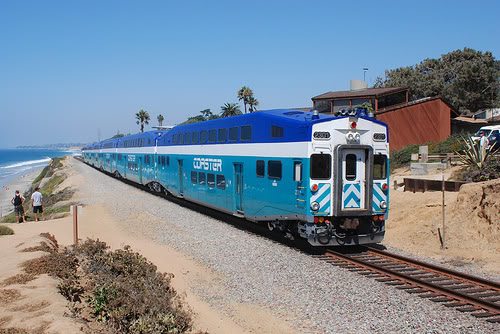Boys in foster care need positive male role models
By SDCN Editor
San Diego, CA–Young males in foster care often don’t have positive male role models in their lives.
Voices for Children recruits and trains caring volunteers, known as Court Appointed Special Advocates (CASAs), to provide supportive services for youth in foster care and advocate for their needs. The organization is currently in high need of compassionate and empathetic men to step up and become volunteer CASAs to advocate for boys in foster care.
In San Diego County, approximately 50% of children in foster care are boys, but only 15% of advocates are male. In Riverside County, about 49% of children in foster care are boys, but only 17% of advocates are male.
Currently, 86 boys in San Diego and Riverside Counties are waiting for an advocate to be there for them, with more entering foster care daily.
Although CASA volunteers are trained and ready to advocate for any child, boys fare better with a consistent, positive male influence. According to research by Kyle Pruett, M.D., and Warren Farrell, Ph.D., children in foster care are likelier to thrive academically, abstain from using drugs, display self-control, and relate well with others when they have a reliable and supportive male presence in their lives.
As a CASA, men can affect the lives of vulnerable youth by developing their self-confidence, teaching them how to persevere, and providing a feeling of physical and emotional security. They can set an example for how to build healthy relationships. They effectively work with social workers, caregivers, attorneys, and other professionals to ensure that a judge has all the information needed to make well-informed decisions for a child in foster care. Most importantly, they advocate for their best interests and ensure their voices are heard.
Long-time CASA Tim Riley has advocated for six boys in 11 years and was selected as the CASA of the Year in 2022. While on jury duty, the Carlsbad resident learned about Voices for Children when a judge announced that he was looking for a few good men to step up and volunteer as CASAs. Tim decided to pay forward the skills he learned as a father and businessman.
“Being a CASA doesn’t require any particular background or training. I certainly didn’t have any, outside of being the parent of two grown children and a retired founder and partner of an advertising agency,” Riley said. “I’m supportive of my case children, but I keep it real. Boys, especially adolescents, need special attention to learn the difference between right and wrong and have empathy for others. I try to lead by example and use other role models to show them what I mean.”
All of CASA Riley’s case youth have lacked a consistent male presence. Because of this, he says they were reluctant to trust men. However, when a CASA enters their lives and continuously shows up, they build trust over time.
CASA Bob has been an advocate and a champion for his case child since becoming a CASA in 2021. Realizing there were so many kids who, at no fault of their own, have had traumatic experiences and lack someone to talk to, confide in, or even trust, he decided to become a CASA.
“Today, the number of male CASA volunteers is disproportionately low, and it’s essential to provide young boys in foster care the opportunity to lean on and learn from stable male role models. I encourage men to take action by offering a few hours a month to make a difference for boys living in foster care in our local community. The little time spent as a CASA may be all it takes to have a life-changing effect,” said CASA Bob.
Anthony O. spent a third of his life in foster care and now advocates for other foster youth. Anthony was supported by his CASA, Daniel, for over a year. Anthony found a safe, permanent home with his great-grandmother through CASA Daniel’s advocacy. Anthony recently graduated from UCLA and is currently working with the LA Galaxy soccer club, continuing to pursue his dream career in sports communication. He is grateful to CASA Daniel for helping him gain self-confidence and know that a college diploma was achievable.
“Having a male role model like my CASA Daniel was so important for me, as I never truly had a man to look up to who succeeded in a career, supported his family, and was open with his emotions and sharing them,” Anthony said.
As a CASA, volunteers provide individualized advocacy that has an immediate and sustainable impact on a child’s life. Whether advocating in court, ensuring access to educational resources, or doing simple things like teaching a child to ride a bike or cheering them on from the bleachers at sports games, your influence has a huge potential payoff for future generations.
For more information, visit speakupnow.org.







